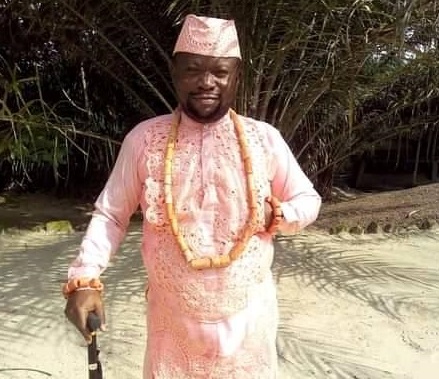By Ejiro Imuere
Introduction:
In a bid to address their political challenges, the Urhobos of Warri South Local Government Area has long yearned for a new local council. However, a closer look reveals that a potential solution has been in existence for over two decades. The Delta state government created two local development councils for the Urhobos of Warri South, specifically for Agbarha Kingdom and Okere Urhobo Kingdom. Although these councils were functional from 2003 to 2007, they have since been abandoned. By leveraging the power of these existing councils, the Urhobos have an opportunity to address their concerns without waiting for the creation of a new local government. Let’s explore the possibilities and the potential impact.

Harnessing Existing Potential:
The creation of the Agbarha and Okere Urhobo local development councils offers a viable solution to the Urhobos’ political aspirations. While theoretically different from federal government-created local governments, these councils possess similar practical functionalities. The key lies in strategically utilizing their existing infrastructure and resources to enhance their autonomy and effectiveness.
State Conducted Elections:
Elections for the local government councils are conducted by the state, not the federal government. The Delta State Independent Electoral Commission (DSIEC) has the authority to organize the elections, presenting an opportunity to hold concurrent elections for the community development councils (CDCs) alongside the main local government elections, effectively treating them as autonomous LGAs.
Financial Autonomy:
Local government finances are derived from the state’s accounts, with the state governor responsible for allocating funds. By allocating a portion of Warri South LGA’s federal allocations to the CDCs, the governor can enable their functionality. Splitting the funds equally among the CDCs, namely Warri Itsekiri CDC, Agbarha CDC, and Okere Urhobo CDC, and supplementing them with internally generated revenue (IGR), will provide the necessary financial backing for these councils to thrive.
Emulating Lagos State’s Success:
Lagos State sets an inspiring example in managing multiple new LGAs created by Asiwaju Bola Tinubu. Despite being deemed valid but inchoate by the Supreme Court, the state government successfully operates these LGAs within the bounds of their validity. Tinubu’s vision and proactive approach allowed the councils to flourish. As Tinubu ascends to the presidency, there is a glimmer of hope that he will expedite granting federal flavor to the CDCs created in 2003, elevating them to fully autonomous LGAs.
The Path Ahead:
The Urhobos of Warri South need not wait for a new local government created by the federal government, which might be challenging under civilian rule. Instead, they can seize the opportunity presented by the legally created CDCs. By demonstrating the parallel creation timelines, they can push for an extension of the federal flavor. However, it is crucial to note that federal flavor may not be a prerequisite for their optimal functionality. Ultimately, the state government holds the key to financing the councils and conducting chairmanship and councilor elections, granting them practical authority.
Conclusion:
In order to overcome their political challenges, the Urhobos of Warri South must think strategically and embrace a future-oriented approach. By leveraging the existing local development councils created for them, they can reclaim their political influence and drive positive change within their communities. It is time for the Urhobos to awaken their strategic foresight and seize the opportunities that lie before them, empowering themselves through the establishment of fully functional local councils.
